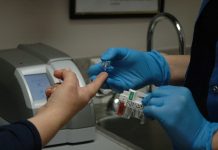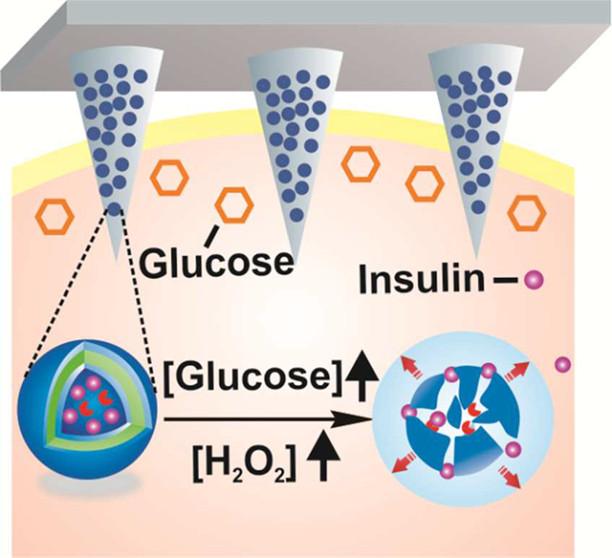May 2003 - Low levels of an enzyme that degrades insulin could increase the risk for Alzheimer's disease, according to a new study in mice by doctors at UT Southwestern Medical Center at Dallas.
The study, to be published online this week and in a future issue of Proceedings of the National Academy of Sciences, is among the first to show a relationship between the enzyme insulysin and Alzheimer's disease.
The discovery also points to a new mechanism linking diseases like diabetes and Alzheimer's � an association that has not been understood, said Dr. Bonnie Miller, assistant professor of internal medicine and a lead author of the study.
"What's exciting is that this suggests a new mechanism that may contribute to Alzheimer's disease � the competition of multiple substrates, such as insulin and amyloid-beta, for a limiting amount of the insulysin enzyme," said Miller.
The researchers studied mice that were missing insulysin gene activity. They found that the insulysin enzyme � in addition to degrading insulin - also degrades amyloid-beta peptides.
Continue Reading Below ↓↓↓
Most importantly, even a partial decrease in insulysin activity was found to raise amyloid-beta peptide levels in the brain. High levels of the peptides increase the risk of Alzheimer's disease, which affects more than 4 million Americans.
"It identifies another pathway that's important in regulating levels of amyloid-beta peptide," said Dr. Dwain Thiele, chief of hepatology at UT Southwestern and one of the study's senior authors. "The next step is to use this animal model to see if there is a risk for developing Alzheimer's disease."
The study is the latest in ongoing research on the effects of the enzyme in T cells and more recently in the liver and brain. The research began in 1994, when the other senior author, Dr. Louis Hersh, was on the UT Southwestern faculty. He is now at the University of Kentucky.
Investigators from the Mayo Clinic in Jacksonville, Fla., also served as lead authors of the study. The National Institutes of Health, the Alzheimer's Association and two Mayo Clinic grants supported the study.
Source: University of Texas Southwestern Medical Center at Dallas










